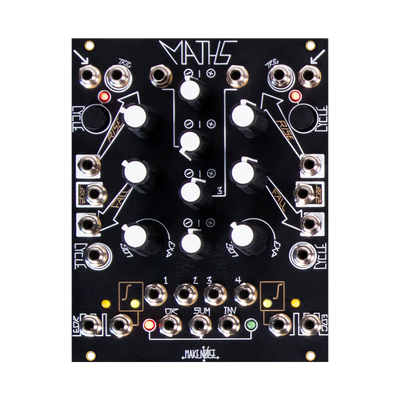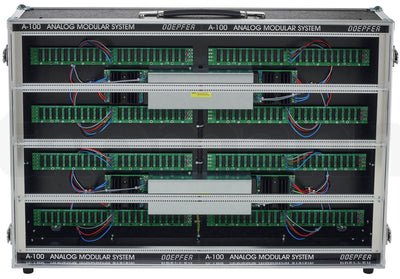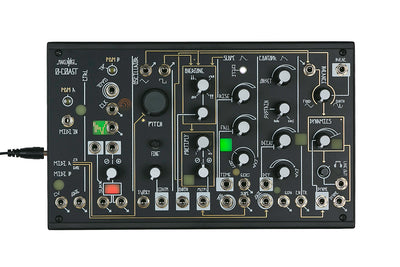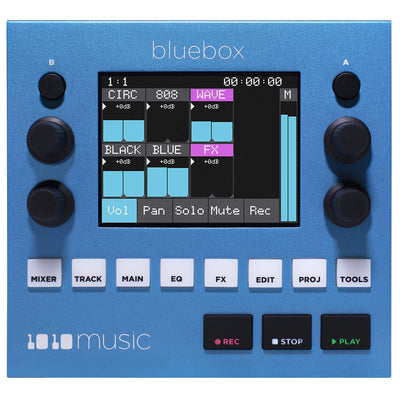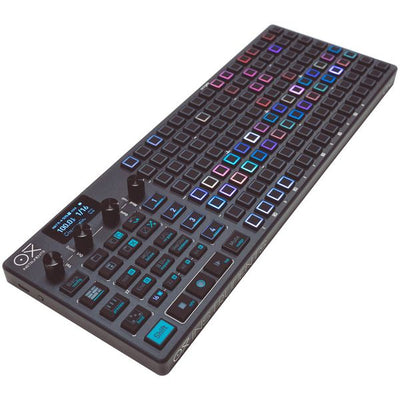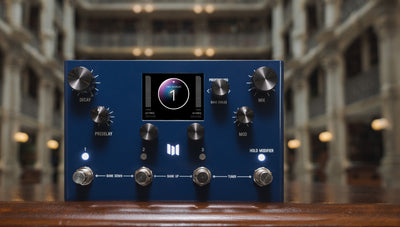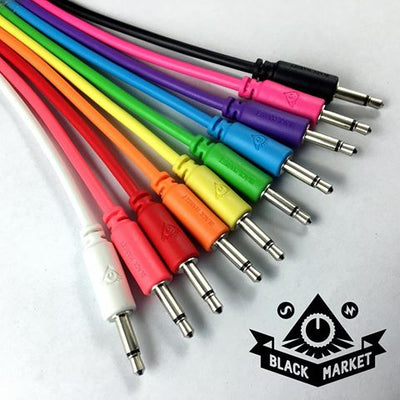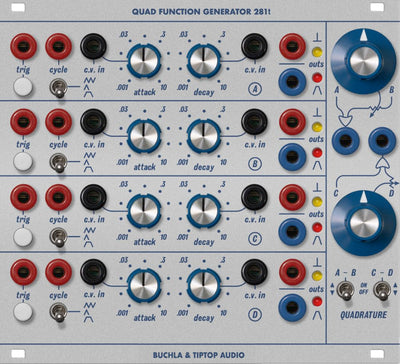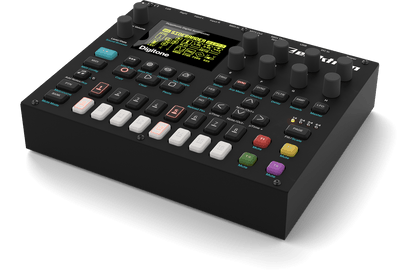|
Module A-111-2 is the successor of the obsolete High End VCO I A-111-1.
Here are the most important features of the planned module:
- triangle core
- fully analog design
- min. 15 octaves pitch range (typ. 0.5Hz - 20kHz in VCO mode / 0.001Hz - 40Hz in LFO mode)
- perfect 1V/octave tracking over min. 10 octaves (typ. 20Hz - 20kHz)
-
exponential frequency controls and inputs:
- Tune (about +/- 1 octave range)
- Fine (about +/- 1 semitone range)
- Octave (range switch with 6 positions)
- 1V/octave CV input
- XFM input with attenuator
- access to internal bus CV (via jumper, optional, please remove the bus jumper if this feature is not used to avoid unwanted frequency modulation as then the unused CV line of the bus works as a kind of antenna)
-
linear frequency controls and inputs:
- LF (manual linear frequency control: fully CW = standard setting for usual VCO applications, fully CCW: close to 0Hz frequency)
works also as a kind of range control for the exponential section
- LFM input with attenuator, DC coupled
-
Pulsewidth controls and inputs (for rectangle output):
- PW (manual pulsewidth control from 0%/output = fixed at "low" state up to 100% / output fixed at "high" state)
- PWM input with attenuator
- Hard Sync input
- Soft Sync input
-
Waveform outputs:
- Sawtooth
- Rectangle (controlled from pulsewidth section)
- Triangle
- Sine
-
Range switch to select VCO/VCLFO mode, frequency relation between VCO mode and LFO mode about 1:500
- dual color LED display (to display low frequencies below ~ 25 Hz)
- Nearly "perfect" waveforms (no glitches)
- high end triangle to sine converter with excellent sine waveshape (thank's to Tim Stinchcombe who recommended this circuit)
- the micro precision VCO A-111-3 uses the same VCO core as the A-111-2, but has less inputs, outputs and controls
|



